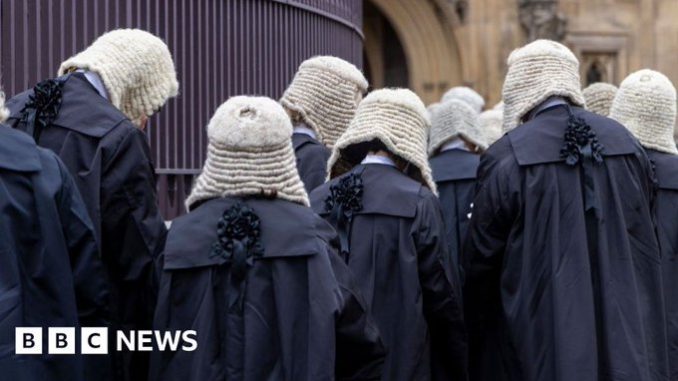
If there was a court case on whether society should embrace artificial intelligence (AI) or reject it, there would likely be a hung jury.
No-one, it seems, can decide whether the benefits – such as automating written tasks, and sifting through vast amounts of information in seconds – outweigh the problems of biased data, and a lack of accuracy and accountability.
For the legal profession itself, AI represents both a threat and an opportunity. It could lead to a « savage reduction » in jobs for humans, according to a 2021 report from the UK’s Law Society.
And a study this year from the universities of Pennsylvania, New York and Princeton estimated that the legal sector was the industry most likely to be impacted by AI.
At the same time, AI can play a hugely valuable role in researching and putting cases together. Although there is precedent for things going horribly wrong.
New York lawyer Steven Schwartz found himself facing his own court hearing this year, when he used popular AI system ChatGPT to research precedents for a case involving a man suing an airline over personal injury. Six of the seven cases he used had been completely made up by the AI.
« I don’t think that it is a technology story, it’s a lawyer story, » he says. « You’ve got to get through the lack of professionalism [by Mr Schwartz], and the lack of ethics, before you get to the fact that the tool was something he shouldn’t have been using. »
